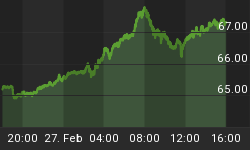In an interesting development in the battle to see which country is bright enough to exit the euro first, a book urging a return to the Escudo (the prior Portuguese currency) became an instant a bestseller in Portugal.
The Wall Street Journal reports Idea of Euro Exit Finds Currency in Portugal.
A book by a Portuguese economist achieved a small feat on its release last month: It instantly topped Portugal's bestseller list, overtaking several diet books and even the popular erotic novel "Fifty Shades of Grey."
The book, "Why We Should Leave the Euro" by João Ferreira do Amaral, has helped ignite a public debate in Portugal about the real cause of the country's economic pain: Is it only the hated austerity needed to secure European bailout loans, or is the euro?
Public lectures, TV debates, newspaper columns and some politicians are starting to explore a question that until recently was confined to university seminars: whether the country has a realistic path to recovery inside the euro.
Portugal "has no chance of growing fast within a monetary union with a currency this strong," Mr. Ferreira do Amaral said in a recent interview. "Thankfully, this issue has stopped being taboo, and there is now a lot of discussion here and abroad." The book is in its fourth edition, selling more than 7,000 copies so far -- a lot for an economics tract in the small Portuguese market.
Mr. Ferreira do Amaral is getting some high-profile backers. This month, Supreme Court of Justice President Luís António Noronha Nascimento called for Portugal and other Southern European countries to quit the euro, warning the gap between Europe's richer and poorer states will keep widening otherwise.
Whether the debate gains traction depends on the economy, analysts say. Portugal's government insists the long-awaited recovery will arrive in 2014, but many economists doubt that. If the recession continues, politicians will need to enact even more budget cuts to meet EU deficit targets. "It may become too hard for politicians to sell austerity measure after austerity measure," says Antonio Costa Pinto, political scientist at the University of Lisbon. "This could create the perfect environment for a shift of ideas."
A year ago, only 20% of Portuguese wanted to leave the euro. It would be interesting to see a similar poll in a few weeks after debate over the book escalates.
Exit Discussion in Multiple Countries
- Beppe Grillo Supports "Referendum on the Euro Within a year"
- 1000 professionals and economists signed on to a Euro Exit Manifest and Jose Carlos Diez says "Spain Must Have a Plan to Exit the Euro"
- The anti-Euro AfD party is gaining traction in Germany.
- The UK Independence Party UKIP is Jubilant following Local Elections
AfD Update
On April 23 I wrote Political Prediction: Merkel Loses Chancellorship in September as Support for AfD Soars. At that time, I noted "I have been watching the iPhone app Wahl-O-Meterand AfD has risen from 5% of the vote to 6.6% now."
Wahl-O-Meter support for AfD now clocks in at 8.9% and the Green Party is down to 10.5% from 11.4%. Wahl-O-Meter is not a statistically valid poll, yet I have been told by reader Bernd (not AfD party leader Bernd Lucke) that Whal did better than polls in predicting results of previous German elections.















